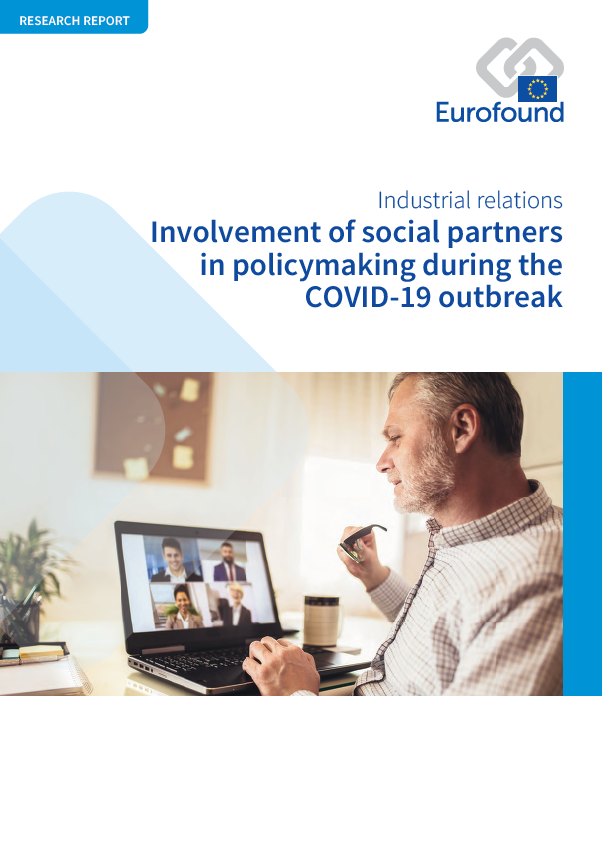
Desde 2016, a Eurofound tem acompanhado de perto a participação dos parceiros sociais nacionais na definição de políticas como parte do processo do Semestre Europeu. Em 2020, as atenções centraram-se na sua participação durante os primeiros meses do surto de COVID-19. Embora a pandemia tenha representado um enorme desafio para o diálogo social, os resultados da análise evidenciam como o diálogo social pode ser um instrumento eficaz na elaboração de iniciativas políticas e na procura de soluções para situações de emergência que afetem as empresas, os trabalhadores, a economia e a sociedade. É claro que a participação dos parceiros sociais na elaboração e implementação de planos nacionais de recuperação e resiliência em 2021 será fundamental no processo de recuperação, bem como para o reforço do diálogo social no futuro.
Key findings
The COVID-19 pandemic has challenged national social dialogue and impacted on the existing frameworks and practices for the involvement of social partners in policymaking.
Time pressure in terms of consultation and engagement during this period is considered to be the main issue in the quality of social dialogue and, as a result, the involvement of social partners.
In general, social partners recognise the exceptional circumstances and constraints imposed by the COVID-19 pandemic, which disrupted the standard involvement frameworks and institutions in place; however, social partners take the view that the majority of governments could have done much better in this area.
The COVID-19 pandemic has shown that, where tripartite social dialogue is well established and permanent, the impact of the health crisis on the involvement of the social partners has been relatively limited.
By contrast, in many other countries, although social dialogue remained in place, it was severely restricted. In this regard, the health crisis has revealed the structural weaknesses of the social dialogue foundation in some industrial relations systems.
List of tables
- Table 1: Extraordinary powers adopted to control the pandemic in Member States
- Table 2: Satisfaction in the involvement of the social partners in policymaking during the first months of the COVID-19 outbreak
- Table 3: Number of selected measures by category
- Table 4: Income protection beyond short-time work – Views of social partners
- Table 5: Employment protection and retention – Views of social partners
- Table 6: Supporting business to stay afloat – Views of social partners
- Table 7: Degree of satisfaction with the appropriateness of the institutional settings for effective involvement
- Table 8: Time allotted for consultation
- Table 9: Feedback and exchange of views
- Table 10: Visibility of social partners’ views
- Table 11: Quality of the processes for social partners’ involvement in NRPs
- Table 12: Degree of influence of the social partners’ views on 2020 NRPs
- Table 13: Social partners’ views regarding the social and labour contents of 2020 NRPs
- Table 14: Social partners’ views regarding the social and labour contents of 2020 CSRs
Figure
- Figure 1: Form of involvement of social partners in the design of policy measures to cushion the socioeconomic impact of the crisis (%)
- Number of pages
-
58
- Reference nº
-
EF20035
- ISBN
-
978-92-897-2161-5
- Catalogue nº
-
TJ-02-21-103-EN-N
- DOI
-
10.2806/993157
- Permalink
Cite this publication
Eurofound (2021), Involvement of social partners in policymaking during the COVID-19 outbreak, Publications Office of the European Union, Luxembourg.
